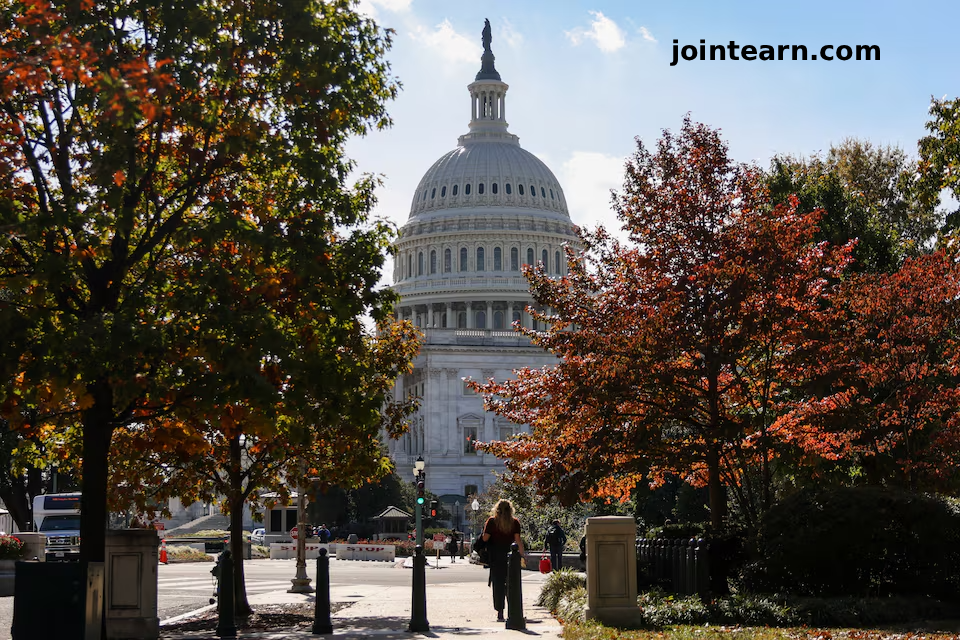
The U.S. House of Representatives is scheduled to vote on Wednesday on a stopgap funding package aimed at ending the longest government shutdown in American history, which has lasted 43 days. The measure seeks to restart critical government services, including food assistance programs, pay hundreds of thousands of federal workers, and restore a crippled air-traffic control system.
Narrow Republican Majority and Trump Support
Currently, Republicans hold a slim 219-213 majority in the House. However, President Donald Trump’s endorsement of the funding package is expected to keep the party largely united, despite strong opposition from House Democrats. Democrats have expressed anger over the package because it does not extend federal healthcare subsidies, a key priority for the party.
The funding package recently passed in the Senate with support from eight Senate Democrats who broke with their party leadership, extending government funding through January 30, 2026. While the package temporarily restores federal operations, it adds approximately $1.8 trillion annually to the U.S. national debt, which now stands at $38 trillion.
Democratic Opposition and House Tensions
House Democrats, frustrated with the Senate deal, have criticized Republicans for failing to address the healthcare affordability crisis. House Democratic Leader Hakeem Jeffries posted on social media that “Donald Trump and Republicans believe the affordability crisis in America is made up. That’s why these extremists haven’t done a damn thing to lower the high cost of living.”
Meanwhile, House Speaker Mike Johnson has urged his colleagues to approve the funding package, calling it an opportunity for Democrats to “do the right thing” and restore government services.
Key Provisions of the Funding Package
The legislation covers three full-year appropriations bills, including:
- Military construction programs
- Agriculture programs, such as food assistance for low-income Americans
- Legislative branch operations
Additionally, the package retroactively allows eight Republican senators to pursue $500,000 in damages for alleged privacy violations during investigations into the January 6, 2021, Capitol attack, along with attorneys’ fees and other costs.
Despite these provisions, the package does not provide any additional healthcare funding, prompting criticism from Democratic leaders, including Senator Patty Murray, who described the measure as containing a “corrupt cash bonus” for GOP senators while leaving critical healthcare issues unaddressed.
Expected Vote and Opposition
The House vote is anticipated late Wednesday and may encounter minimal Republican opposition, primarily from Thomas Massie of Kentucky and Victoria Spartz of Indiana, who previously opposed earlier funding attempts. The House Freedom Caucus, often a barrier to spending legislation, is not expected to block the measure, according to Representative Andy Harris of Maryland, chairman of the group.
Broader Context
Once the government is funded, attention in the House may shift to other high-profile issues, including a potential vote on releasing unclassified records related to Jeffrey Epstein, which Speaker Johnson and former President Trump have resisted.
The funding package aims to stabilize government operations temporarily, restoring critical services to Americans while leaving broader debates on healthcare subsidies and national debt unresolved.


Leave a Reply